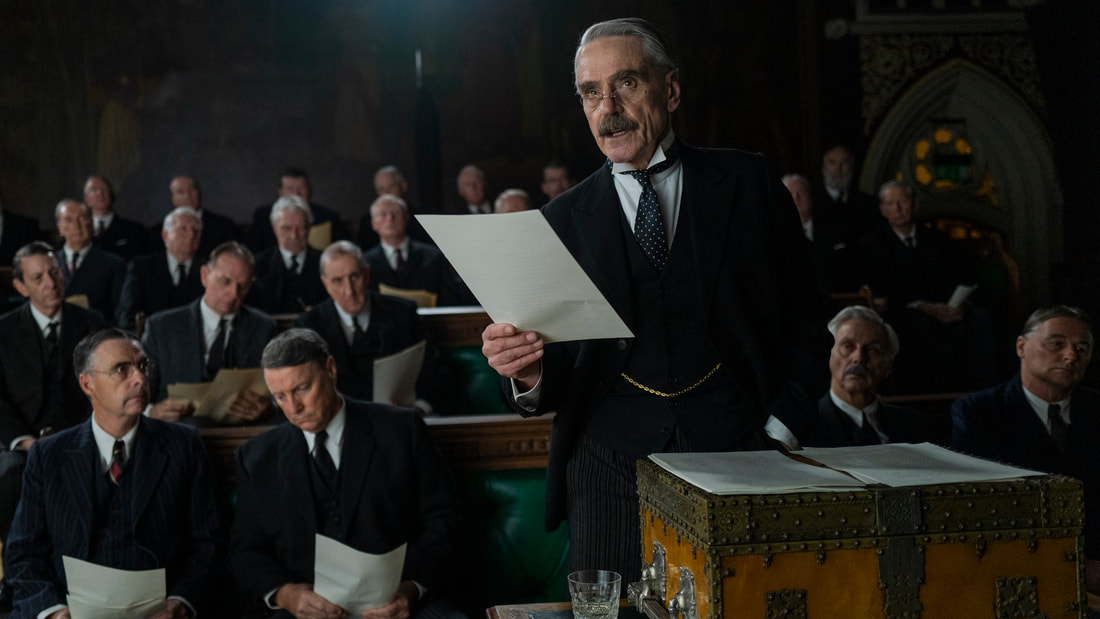|
Review by Sean Boelman
Every year, there are a handful of would-be prestige pictures released just under the wire before the turn of the calendar signals the beginning of a new awards cycle. More often than not, these campaigns seem to be more out of obligation than the film genuinely earning it, and that is the case with Munich — The Edge of War, a passable thriller elevated by a solid cast.
Based on Robert Harris’s novel, the movie follows a British diplomat who, during the rise of Adolf Hitler, finds himself at the center of potential peace negotiations when a former classmate of his who is working for the German government begins to question his allegiance. In terms of espionage thrillers, it’s very by-the-numbers, with a lot of boardroom talk and very little action. Perhaps the most fundamental flaw of the film is the fact that these events didn’t really have all that much effect on the eventual onset of World War II, and yet the movie expects the audience to believe that they did. It’s really just a bunch of proceedings that amounted to little more than an insignificant formality, not the precursor to war that they would have the viewer think. There have been so many films now about “good Nazis” who turn against the tyraniccal ways of the Third Reich, and at this point the message has become old. It would take a very fresh perspective on the dilemma of deciding between patriotism and morality for it to be interesting, and Ben Power’s script does not offer that.
What Power does bring to the table is an interesting angle on British Prime Minister Neville Chamberlain, who is one of the more controversial political figures in history. The lead characters are stale and underdeveloped, but it is this depiction of Chamberlain as a conflicted man, torn between the expectations of a country and what he knows but is unable to say, that allows the movie to stand out.
Jeremy Irons gives a performance that is one of, if not the single best he has given in his career. Every time he is on screen is absolutely electric, commanding the viewer to watch him rather than anything else happening on screen. George MacKay is the other notable star in the film, although his role isn’t as substantial or memorable. From a technical level, the movie is competent even if it does leave something to be desired. The production design does a good job of setting the time period, but what is missing is a strong mood. For a film that is set largely behind closed doors, the movie fails to create a sense of claustrophobia. Only one scene, the first in which the audience sees Hitler, is adequately suspenseful. Munich — The Edge of War has an elevated sense of self-importance, and that is what drags it down. Ultimately, it’s just a very average espionage thriller with a strong supporting performance and an intriguing take on a well-known politician. Munich — The Edge of War hits theaters on December 31 and Netflix on January 21. Rating: 3/5
0 Comments
Leave a Reply. |
Archives
July 2024
Authors
All
|
|
|
disappointment media
Dedicated to unique and diverse perspectives on cinema! |


